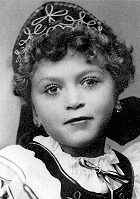You searched for: 谷歌seo霸屏投放靠谱【TG飞机:@bapingseo】摩纳哥谷歌留痕推广【TG电报:@bapingseo】資金程序源碼網站【Telegram:@bapingseo】csgo比赛押注巴黎人注册送39元欢迎您?20220707C4hV7w.html
<< Previous | Displaying results 611-620 of 644 for "谷歌seo霸屏投放靠谱【TG飞机:@bapingseo】摩纳哥谷歌留痕推广【TG电报:@bapingseo】資金程序源碼網站【Telegram:@bapingseo】csgo比赛押注巴黎人注册送39元欢迎您?20220707C4hV7w.html" | Next >>
-
Pawel Wos
ID CardPawel, a Roman Catholic, fled to Danzig, Germany, in 1914 to avoid conscription in the Russian army. Since Germany and Russia were at war, Pawel was arrested by the Germans as an enemy alien and sent to work on a farm in northern Germany. He met Anna Szachowska there, and they married in 1918. The couple moved to Warsaw where they raised 4 children. In 1930 Pawel opened a textile business. 1933-39: Despite the Depression, Pawel's business prospered and they expanded their operations. In 1938 some friends…
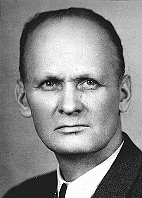
-
Hannah Rosenblat
ID CardHannah was one of six children born to Yiddish-speaking, religious Jewish parents in the town of Zvolen in central Poland. She married Jozef Rosenblat, a Jewish shoemaker also from Zvolen. After living in Warsaw for several years, Hannah and Jozef settled in the industrial city of Radom near their hometown. There, they raised their three sons. 1933-39: When Germany threatened to attack Poland in August 1939, Hannah's youngest son, Herschel, was called up by the Polish army. On September 1, 1939, Germany…
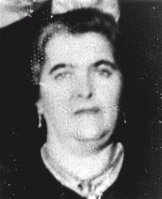
-
Odon Jerzy Wos
ID CardOdon was the third of four children born to Roman Catholic parents in Warsaw, Poland's capital. His father had worked for the Polish merchant marine before starting his own textile business in 1930. When Odon was 8, the family moved to a comfortable apartment located near the Royal Castle and Vistula River. In 1932 Odon began attending grade school. 1933-39: In September 1938 Odon began secondary school. Sensing growing danger from Germany, his father advised him to study German in addition to French. On…
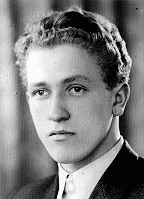
-
Mieczyslaw (Marek) Madejski
ID CardMieczyslaw was the eldest of three sons born to well-to-do Roman Catholic parents in Poland's capital of Warsaw. His father was a real estate developer and his mother was a housewife. Mieczyslaw, or Mieteck as he was nicknamed, began attending public elementary school in 1930 when he was 7 years old. 1933-39: Mieczyslaw's father urged him to study either German or Russian because he thought it was likely that there would be a German or Soviet invasion. Germany invaded Poland on September 1, 1939. During…
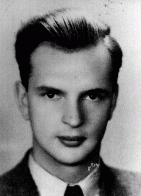
-
Elya Rosenblat
ID CardElya, also known as Eli, was the eldest of three sons born to Yiddish-speaking Jewish parents. When Elya was a child his family moved to the industrial city of Radom, located about 60 miles south of Warsaw. After completing school in Radom, Elya apprenticed to become a women's tailor. Eventually, he became licensed as a master tailor. 1933-39: Elya married in 1936 and had a daughter one year later. He and his wife lived on Zeromskiego Street across from Elya's younger brother, Itzik, who was also a…
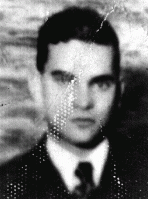
-
Moishe Krol
ID CardMoishe was born to Yiddish-speaking Jewish parents in Radom. The industrial city was known for its armaments factories in which Jews could not work and for its leather industry in which many Jews did. When Moishe was a teenager, he finished school and apprenticed to become a women's tailor. Moishe earned a certificate enabling him to be a licensed tailor and settled down in Radom. 1933-39: By 1939, Moishe had become a master tailor specializing in women's clothes. He remembers local antisemitic…
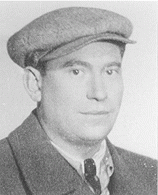
-
Stevo Jugovic
ID CardStevo, who was Serbian Orthodox, was a blacksmith, gunsmith and farmer in the village of Pucari. When he was 20, he went to live in the United States in Minnesota for four years. In 1912 he returned to Pucari, but when his wife and two of his sons died from influenza, he left again for America. In 1923 he returned to Pucari, where he remarried and raised four more children. 1933-39: Stevo had saved some money in the United States, and became one of the wealthiest farmers in his village. He acquired…
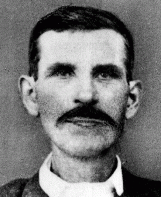
-
Miksa Deutsch
ID CardMiksa was the youngest of four children born to religious Jewish parents. The Deutches lived in the town of Bistrita in Transylvania, a region of Romania that belonged to Hungary until 1918. After 1910, the family lived in nearby Viseu de Sus. In 1922 Miksa moved to Budapest, Hungary, where he and his older brother, Pal, opened a business selling matches. In 1928 Miksa married Kornelia Mahrer. 1933-39: Miksa and Kornelia had three children, whom they raised with a religious education. Miksa and his…
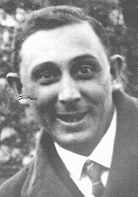
-
Wilma Schlesinger Mahrer
ID CardWilma was the oldest of two daughters born to German-speaking Jewish parents. She married Gyula Mahrer, a Hungarian Jew who had fought in the Hungarian army during World War I. The couple lived in the Hungarian capital of Budapest, where they raised two daughters. The Mahrers lived near their eldest daughter, Kornelia, who had married in 1928. 1933-39: Wilma's first grandchild, Maria, was born on Wilma's 55th birthday. By 1936 Wilma had five grandchildren, three of whom lived in Budapest with her daughter…
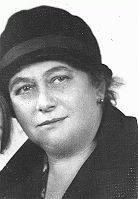
-
Judith Schwed
ID CardJudith was the older of two children born to Jewish parents in the town of Kiskunfelegyhaza in southeastern Hungary. Her mother, Anna, and her mother's sister, Kornelia, were close in age and had a contest to see who would be the first to have a baby. Judith's Aunt Kornelia won the contest and cousin Maria was born in December 1931, just three weeks before Judith. 1933-39: Judith's father had a prosperous wholesale business that sold goose meat, down, feathers and quilts. In 1939, the same year that…
